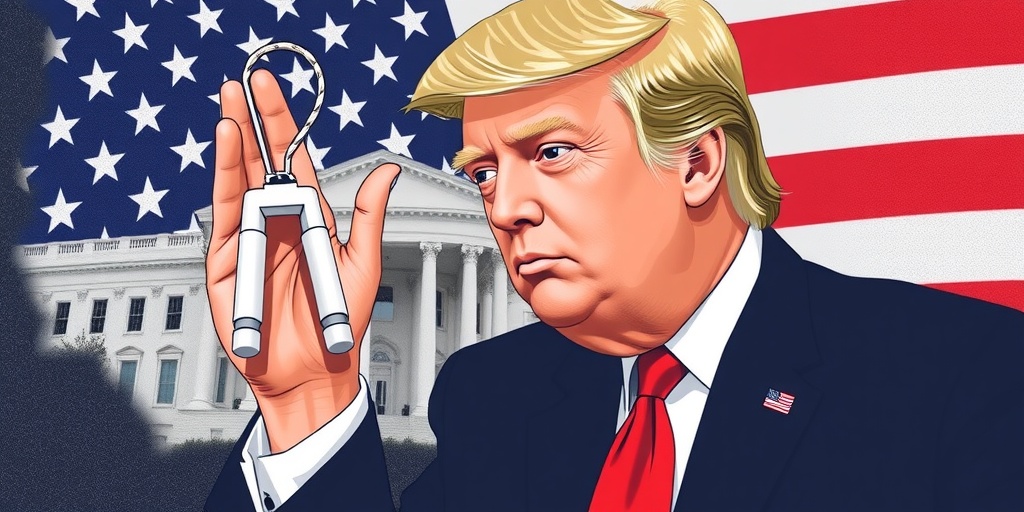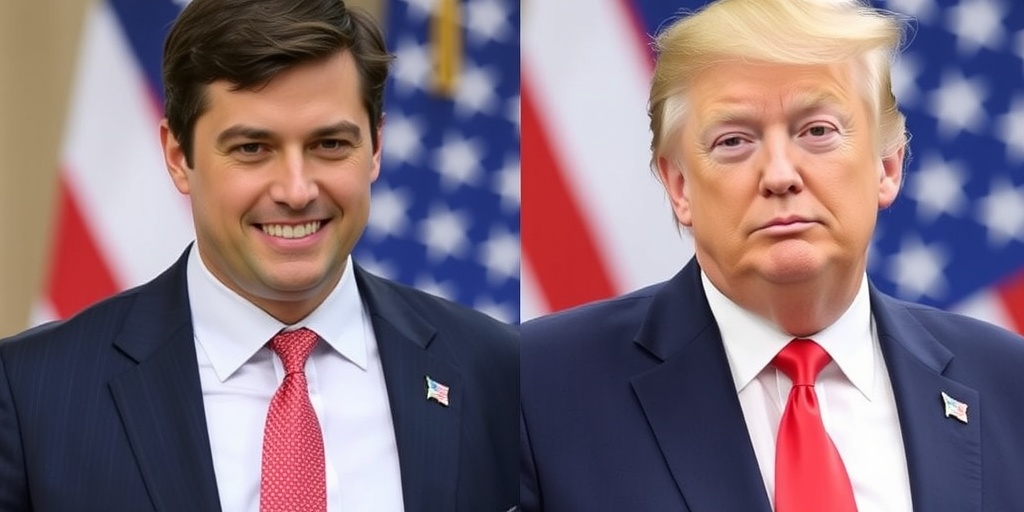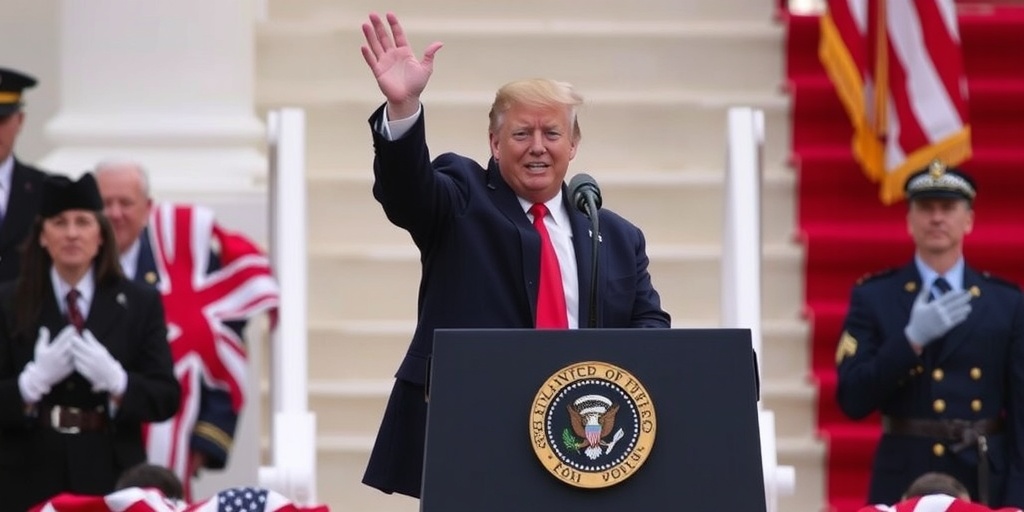Now Reading: Trump Flouts Judge’s Ruling, Sends Hundreds of Venezuelans to El Salvador
-
01
Trump Flouts Judge’s Ruling, Sends Hundreds of Venezuelans to El Salvador
Trump Flouts Judge’s Ruling, Sends Hundreds of Venezuelans to El Salvador
U.S. Administration Deports Venezuelan Gang Members to El Salvador Amid Controversy
In a controversial move that raises significant questions about immigration law and executive power, the Trump administration has reportedly deported hundreds of Venezuelans accused of gang affiliation to El Salvador. This decision is reportedly taking place despite a federal judge’s order that aimed to block such deportation flights. The implications of this action reverberate through the legal community and the public, as it challenges the boundaries of U.S. immigration policy.
On Sunday, President Nayib Bukele of El Salvador released a video on social media depicting handcuffed men being escorted off a plane at night. This footage shows the men being led into a prison facility after arriving in the Central American nation. Bukele claimed that this marked the arrival of the first 238 members of the Venezuelan criminal organization known as Tren de Aragua. He added in his post that while “The United States will pay a very low fee for them, but a high one for us,” the transaction remains a focal point for discussion, particularly regarding the ethical and legal ramifications of such a move.
The Trump administration appears to be leveraging a unique provision within U.S. law known as the Alien Enemies Act of 1798, which allows for expedited deportations of individuals from countries that are deemed to be at war with the United States. Historically, this controversial law has been invoked only three times: during the War of 1812, World War I, and World War II, primarily for its role in the internment of Japanese Americans. Critics argue that its invocation today represents a significant and troubling expansion of executive power, allowing the administration to act swiftly in identifying and deporting alleged gang members without the extensive legal proceedings typically associated with immigration cases.
Despite this legal framework, the recent actions of the Trump administration have been met with significant legal pushback. On Saturday, Judge James E. Boasberg of the Federal District Court in Washington issued a temporary restraining order to halt deportations under the Alien Enemies Act. This ruling was delivered in a hastily convened hearing requested by the American Civil Liberties Union (ACLU), with Judge Boasberg expressing skepticism regarding the legality of the president’s actions. He ordered any flights that had already departed with Venezuelan immigrants to return to the United States, emphasizing the urgent nature of compliance with his order.
The timing of the flights to El Salvador is particularly critical in light of these developments. Judge Boasberg’s order was issued shortly before 7 p.m. Washington time, while the deportation flights were reportedly occurring later that night. Considering that El Salvador is two hours behind Washington, this raises serious questions about whether the Trump administration deliberately disregarded a direct court order—a violation that could potentially lead to additional legal consequences.
In a pointed social media response, President Bukele posted a screenshot of Judge Boasberg’s order, cheekily commenting, “Oopsie… Too late,” which suggests that he may view the deportations as a completed transaction, irrespective of the ongoing legal discourse in the U.S. On the other hand, U.S. Attorney General Pam Bondi issued a statement sharply criticizing Judge Boasberg’s ruling, accusing it of prioritizing the rights of “terrorists” over the safety of American citizens. She argued that the judicial order undermined well-established authority concerning presidential power and posed risks to public safety and law enforcement.
The legal and ethical implications of these events extend far beyond the immediate actions of the Trump administration. By relying on the Alien Enemies Act in this manner, critics argue that the administration is setting a precarious precedent that could redefine the parameters of executive power in immigration matters. The disconnect between judicial oversight and executive action raises profound questions about the integrity of the legal system and the rights of immigrants.
As this story unfolds, it will be crucial to monitor the developments surrounding the deportations and the legal battles that may arise in response to the Trump administration’s controversial use of the Alien Enemies Act. The potential consequences for both the individuals involved and the broader implications for U.S. immigration policy are subject to ongoing scrutiny and debate within the legal community and society at large.
Stay Informed With the Latest & Most Important News
Previous Post
Next Post
-
 01New technology breakthrough has everyone talking right now
01New technology breakthrough has everyone talking right now -
 02Unbelievable life hack everyone needs to try today
02Unbelievable life hack everyone needs to try today -
 03Fascinating discovery found buried deep beneath the ocean
03Fascinating discovery found buried deep beneath the ocean -
 04Man invents genius device that solves everyday problems
04Man invents genius device that solves everyday problems -
 05Shocking discovery that changes what we know forever
05Shocking discovery that changes what we know forever -
 06Internet goes wild over celebrity’s unexpected fashion choice
06Internet goes wild over celebrity’s unexpected fashion choice -
 07Rare animal sighting stuns scientists and wildlife lovers
07Rare animal sighting stuns scientists and wildlife lovers



















